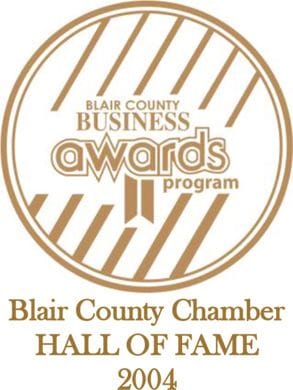Chapter 13 Bankruptcy
How Does A Chapter 13 Case Operate?
In a Chapter 13 bankruptcy action, you are generally permitted to keep your property (i.e. real estate and/or personal property). Each Chapter 13 Debtor prepares a budget and a written plan, which must be approved by the Bankruptcy Court. You receive a discharge upon completion of your Chapter 13 Plan. You must earn wages or have some regular income, and you must agree to pay part of this future income to your creditors through your Chapter 13 Plan. A Trustee is appointed and will collect payments from you, pay your creditors, and monitor whether or not you live up to the terms of your repayment plan.
What Is A Discharge?
A discharge is a court order which states that you do not have to pay most of your debts. Creditors cannot ask you to pay any debts which have been discharged. A discharge only applies to those debts that arose before the date you file your bankruptcy petition. Some debts, however, cannot be discharged. For example, you cannot discharge debts for
- Most taxes;
- Child support;
- Alimony and/or obligations under a divorce/marriage/separation agreement;
- Most student loans;
- Court fines and criminal restitution;
- Personal injury caused by driving drunk or under the influence of drugs.
Your discharge may be denied by the Bankruptcy Court for certain conduct, including destroying or concealing property; destroying, concealing, or falsifying records; making a false oath; or omitting assets. Accordingly, it is imperative that you list all of your assets and debts in any bankruptcy filing and that you answer all questions accurately and honestly.
How Long Will My Bankruptcy Discharge Impact My Credit?
A bankruptcy filing can appear on your credit report for as long as ten years. Thus, the filing of a bankruptcy petition may affect your ability to obtain credit in the future. In most cases, a discharge order will not preclude you from obtaining any form of credit post-bankruptcy.
Q.Do I Need To Appear Before A Judge?
A. No. In most Chapter 13 bankruptcy actions involving consumer debts, you do not need to appear before a bankruptcy court judge. Most Chapter 13 debtors are required only to attend and participate in a “341 Meeting of Creditors” with their attorney. This Meeting is located in the County in which the Debtor resides or in an adjacent county, and it is usually scheduled within 6 to 8 weeks after you have filed your bankruptcy petition and your Chapter 13 Plan. A typical Meeting lasts for 10 minutes and involves answering approximately 15 questions under oath posed by the Chapter 13 Trustee. In addition, for Chapter 13 Debtors, the 341 Meeting of Creditors also serves as a “conciliation conference” wherein you may receive interim or final confirmation of your Chapter 13 Plan.
How Long Does A Chapter 13 Bankruptcy Case Last?
3 years to 5 years. During this time, you make any payments on secured loans (e.g. mortgage loans, vehicle loans) to the Chapter 13 Trustee. In addition, you make payments on mortgage arrears (if any) and excess funds from your monthly budget (if any) to the Chapter 13 Trustee. The latter funds (i.e. any excess funds) are ultimately used to pay a dividend (i.e. a percentage) to unsecured creditors who file proofs of claim in your case. Upon completion of your Chapter 13 Plan, you receive a discharge for all unpaid debts (except your mortgage and other secured loans).
Can I Amend My Chapter 13 Plan If I Experience A Change In Financial Circumstances Or I Get Behind In My Plan Payments?
Yes. However, any amendment of your Plan requires Bankruptcy Court review and approval. You may be required, therefore, to participate in subsequent conciliation conferences with your counsel and the Chapter 13 Trustee.
Will I Be Able To Keep My House And/Or Car?
Yes, in most cases. If you own your home subject to a mortgage loan and any equity you have in the home is within federal or state exemption limits, you will be able to retain your residence and continue to make your mortgage payments. If you are behind on mortgage payments or if the equity in your home exceeds applicable exemption limits, a Chapter 13 bankruptcy action may afford you the opportunity to repay the mortgage arrears to your lender(s), or pay the excess equity in the form of a dividend to unsecured creditors, over the 3 to 5 year repayment period. However, you must have sufficient income to make these payments, and your Chapter 13 Plan must be approved by the Bankruptcy Court. If you own a vehicle subject to a loan, you will in most cases be able to retain it and continue to make the loan payment on it through your Chapter 13 Plan. In certain circumstances, you may be able to modify the terms of either your mortgage loan or a secured loan on a vehicle.
Are There Limits On The Amount Of Debt Subject To Administration In A Chapter 13 Case?
Yes. Chapter 13 is only available to individuals with regular income (or income from a third person willing to fund the Debtor’s Chapter 13 Plan), and there is a limit for both the amount of unsecured debt and secured debt. At present, that limit is $1,347,500.00, ($336,900.00 in unsecured debts, and $1,010,650.00 in secured debts).

